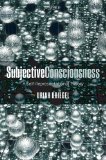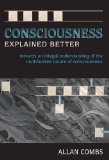October 27, 2009
Found via the Book Bench at the New Yorker:

Fall of Sleep by Jean-Luc Nancy, tr. Charlotte Mandell (Fordham University Press, 2009)
(link for UK)
Product description from the publisher:
Philosophers have largely ignored sleep, treating it as a useless negativity, mere repose for the body or at best a source for the production of unconscious signs out of the night of the soul. In an extraordinary theoretical investigation written with lyric intensity, The Fall of Sleep puts an end to this neglect by providing a deft yet rigorous philosophy of sleep. What does it mean to “fall” asleep? Might there exist something like a “reason” of sleep, a reason at work in its own form or modality, a modality of being in oneself, of return to oneself, without the waking “self” that distinguishes “I” from “you” and from the world? What reason might exist in that absence of ego, appearance, and intention, in an abandon thanks to which one is emptied out into a non-place shared by everyone? Sleep attests to something like an equality of all that exists in the rhythm of the world. With sleep, victory is constantly renewed over the fear of night, an a confidence that we will wake with the return of day, in a return to self, to us–though to a self, an us, that is each day different, unforeseen, without any warning given in advance.To seek anew the meaning stirring in the supposed loss of meaning, of consciousness, and of control that occurs in sleep is not to reclaim some meaning already familiar in philosophy, religion, progressivism, or any other -ism. It is instead to open anew a source that is not the source of a meaning but that makes up the nature proper to meaning, its truth: opening, gushing forth, infinity.This beautiful, profound meditation on sleep is a unique work in the history of phenomenology–a lyrical phenomenology of what can have no phenomenology, since sleep shows itself to the waking observer, the subject of phenomenology, only as disappearance and concealment.
Comments (0)
- consciousness,new books,philosophy of mind
October 17, 2009

Buddha’s Brain: The Practical Neuroscience of Happiness, Love, and Wisdom by Rick Hanson with Richard Mendius (New Harbinger, 2009)
(link for UK)
Product description from the publisher:
Jesus, Moses, Mohammed, Gandhi, and the Buddha all had brains built essentially like anyone else’s, yet they were able to harness their thoughts and shape their patterns of thinking in ways that changed history. With new breakthroughs in modern neuroscience and the wisdom of thousands of years of contemplative practice, it is possible for us to shape our own thoughts in a similar way for greater happiness, love, compassion, and wisdom.
Buddha’s Brain joins the forces of modern neuroscience with ancient contemplative teachings to show readers how they can work toward greater emotional well-being, healthier relationships, more effective actions, and deepened religious and spiritual understanding. This book will explain how the core elements of both psychological well-being and religious or spiritual life-virtue, mindfulness, and wisdom-are based in the core functions of the brain: regulating, learning, and valuing. Readers will also learn practical ways to apply this information, as the book offers many exercises they can do to tap the unused potential of the brain and rewire it over time for greater peace and well-being.
Comments (2)
- consciousness,happiness,meditation,new books
October 16, 2009

Religious Experience Reconsidered: A Building-Block Approach to the Study of Religion and Other Special Things by Ann Taves (Princeton University Press, 2009)
(link for UK)
Product description from the publisher:
The essence of religion was once widely thought to be a unique form of experience that could not be explained in neurological, psychological, or sociological terms. In recent decades scholars have questioned the privileging of the idea of religious experience in the study of religion, an approach that effectively isolated the study of religion from the social and natural sciences. Religious Experience Reconsidered lays out a framework for research into religious phenomena that reclaims experience as a central concept while bridging the divide between religious studies and the sciences.
Ann Taves shifts the focus from “religious experience,” conceived as a fixed and stable thing, to an examination of the processes by which people attribute meaning to their experiences. She proposes a new approach that unites the study of religion with fields as diverse as neuroscience, anthropology, sociology, and psychology to better understand how these processes are incorporated into the broader cultural formations we think of as religious or spiritual. Taves addresses a series of key questions: how can we set up studies without obscuring contestations over meaning and value? What is the relationship between experience and consciousness? How can research into consciousness help us access and interpret the experiences of others? Why do people individually or collectively explain their experiences in religious terms? How can we set up studies that allow us to compare experiences across times and cultures?
Religious Experience Reconsidered demonstrates how methods from the sciences can be combined with those from the humanities to advance a naturalistic understanding of the experiences that people deem religious.
Comments (0)
- consciousness,culture,new books
September 18, 2009

Subjective Consciousness: A Self-Representational Theory by Uriah Kriegel (Oxford University Press, 2009)
(link for UK)
Product description from the publisher:
Some mental events are conscious, some are unconscious. What is the difference between the two? Uriah Kriegel offers an answer. His aim is a comprehensive theory of the features that all and only conscious mental events have. The key idea is that consciousness arises when self-awareness and world-awareness are integrated in the right way. Conscious mental events differ from unconscious ones in that, whatever else they may represent, they always also represent themselves, and do so in a very specific way. Subjective Consciousness is a fascinating new move forward towards a full understanding of the mind.
Kriegel is an Associate Director of the Center for Consciousness Studies, where plans for the 2010 Toward a Science of Consciousness conference are underway…
See also: Author’s website
Comments (0)
- consciousness,new books,self
September 16, 2009

Consciousness Explained Better: Towards an Integral Understanding of the Multifaceted Nature of Consciousness by Allan Combs (Paragon House, 2009).
(link for UK)
Product description from the publisher:
This title offers a thorough and insightful exploration of human consciousness in all its forms. “Consciousness Explained Better” offers readers an insightful, down-to-earth, and above all, easy-to-understand exploration of consciousness in its many facets and forms. Grounded in the author’s thorough understanding of the various aspects and development of consciousness, this superbly written volume examines human consciousness from a wide range of view-points – its historical evolution, its growth in the individual, its mystical dimensions, and the meaning of enlightenment – giving readers a greater understanding of how these aspects of consciousness combine to create the kaleidoscopic yet lucid experience that is the essence of humanity.
Allan Combs is on the faculty of the California Institute of Integral Studies.
Comments (0)
- consciousness,new books







